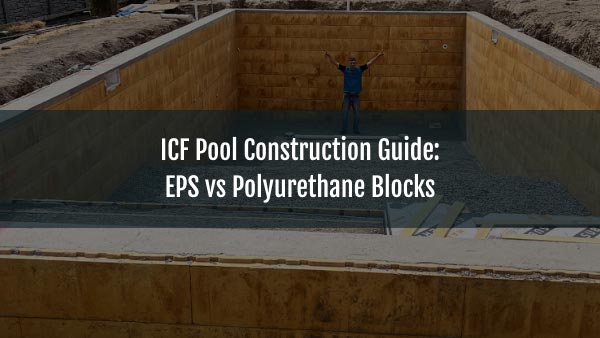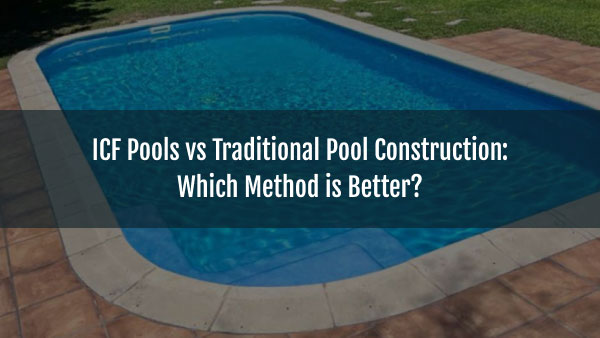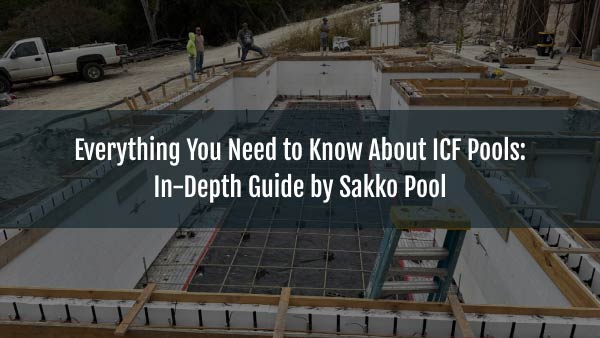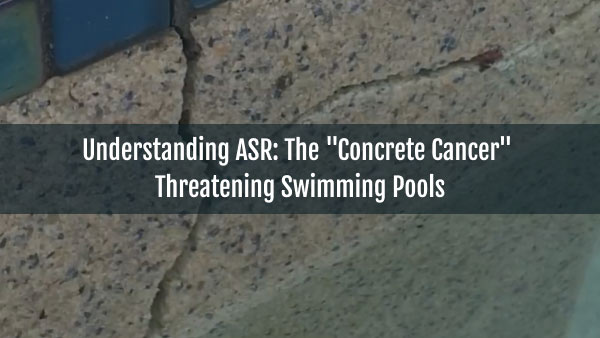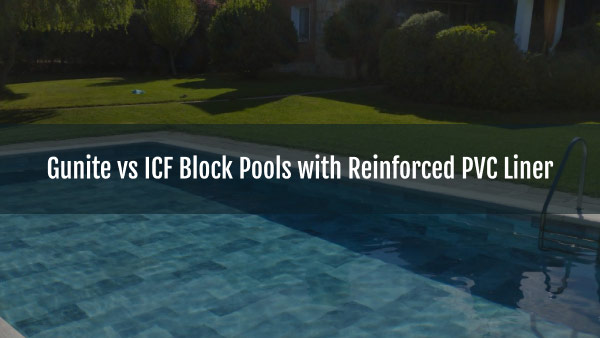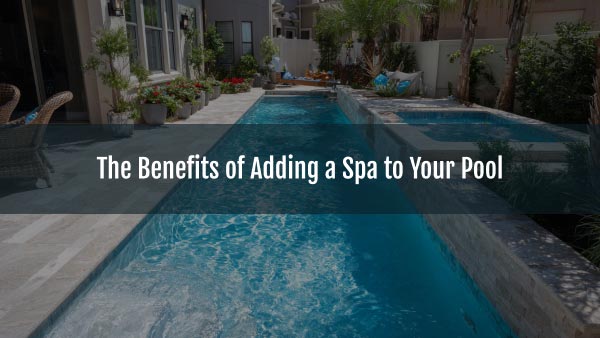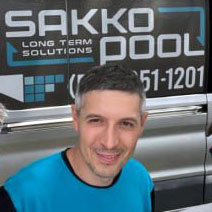Choosing the right pool resurfacing material is critical for ensuring its functionality, attractiveness, and durability and a qualified pool construction company can help you navigate the options. There are many options, each with its own advantages and disadvantages, making the choice dependent on factors such as budget, maintenance preferences, aesthetics, and climate. Let’s explore popular pool resurfacing materials.
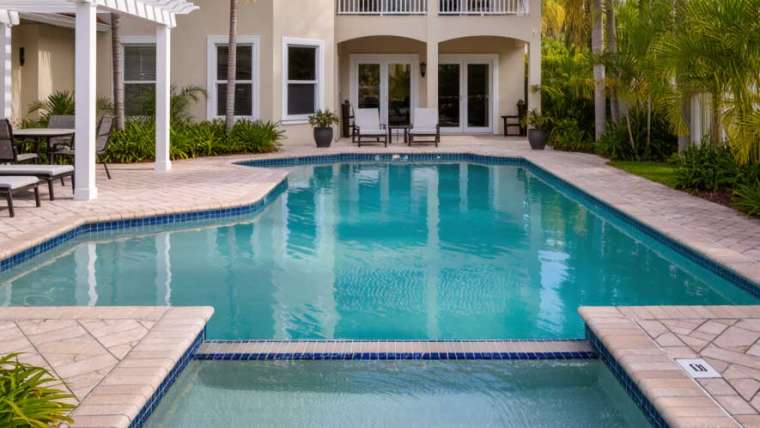
Common Pool Resurfacing Materials
Pool resurfacing materials vary in cost, durability, and maintenance needs. Below is an overview of the most popular options:
- Plaster: A traditional and cost-effective material, plaster provides a smooth, classic white or colored finish achieved with dyes. It’s widely used but typically lasts 5–10 years before needing repairs or resurfacing due to cracks or stains. It requires constant maintenance, making its upkeep labor-intensive and costly.
- Aggregate Finishes (Pebble or Quartz): These combine plaster with small pebbles or quartz for a textured, durable surface. They last 10–15 years, resist stains better than plaster, and offer a natural, upscale look, but they are more expensive. Like plaster, they are prone to cracking and require regular maintenance.
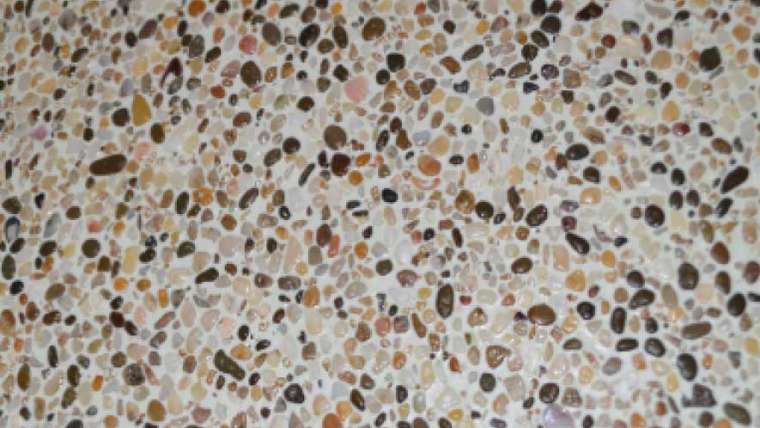
- Tile: Ceramic or glass tile creates a luxurious, customizable appearance. It’s highly durable (15–20 years or more) and resistant to stains and chemicals. The downside is the high installation cost. Repairs for a tiled pool can be as expensive as the initial installation.
- Thick Reinforced PVC Membrane: This type of liner is gaining popularity due to its durability, ease of installation, and low maintenance requirements. With proper regular care, a PVC membrane, such as Cefil 60 mil pool liner, can reliably last 20+ years. It’s a versatile option suitable for various pool types and climates.
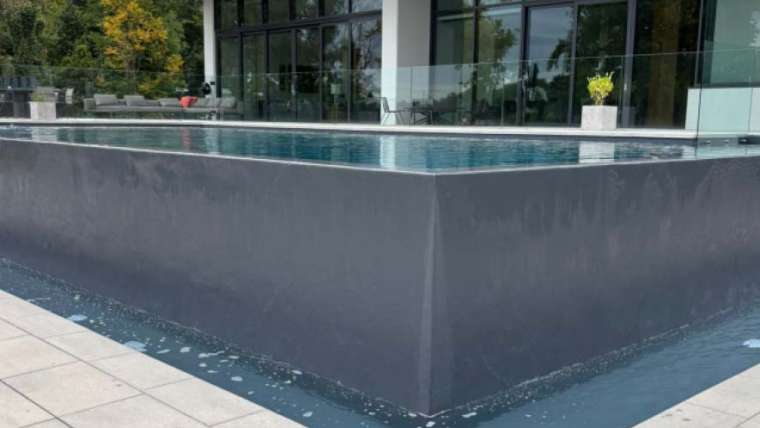
Why Choose a Thick Reinforced PVC Membrane?
Among the listed options, a thick reinforced PVC membrane stands out for its unique combination of practicality and durability. It offers the following qualities:
- Durability and Longevity: Thick reinforced PVC membranes are designed to withstand various adverse external factors and can last 20+ years with proper care. The reinforcement prevents punctures and tears, reducing the risk of leaks and making them ideal for high-traffic pools.
- Low Maintenance: Unlike plaster or aggregate finishes, PVC membranes are non-porous and feature a protective acrylic varnish layer. This prevents algae growth, staining, and chemical damage, reducing the need for frequent cleaning and costly treatments.
- Cost-Effectiveness: Installing a PVC membrane is generally cheaper than plaster or pebble. It requires significantly less maintenance, saving money in the long run, and is easy and inexpensive to repair.
- Quick and Easy Installation: Depending on the pool’s size and shape, installing a PVC membrane takes a few days to a couple of weeks, faster than tile installation. This minimizes pool downtime and labor costs.
- Customizable Aesthetics: PVC membranes are available in various colors, patterns, and textures, realistically mimicking the look of tile, mosaic, or natural stone, offering a high-end appearance at a lower cost.
- Climate Adaptability: PVC membranes perform well in diverse climates, resisting cracking in low temperatures and fading under intense sunlight. This makes them suitable for both indoor and outdoor pools.
- Comfortable Surface: The smooth, flexible surface of a PVC membrane is gentle on swimmers’ feet, unlike the rougher textures of pebble or plaster. Anti-slip textured membranes are also available.
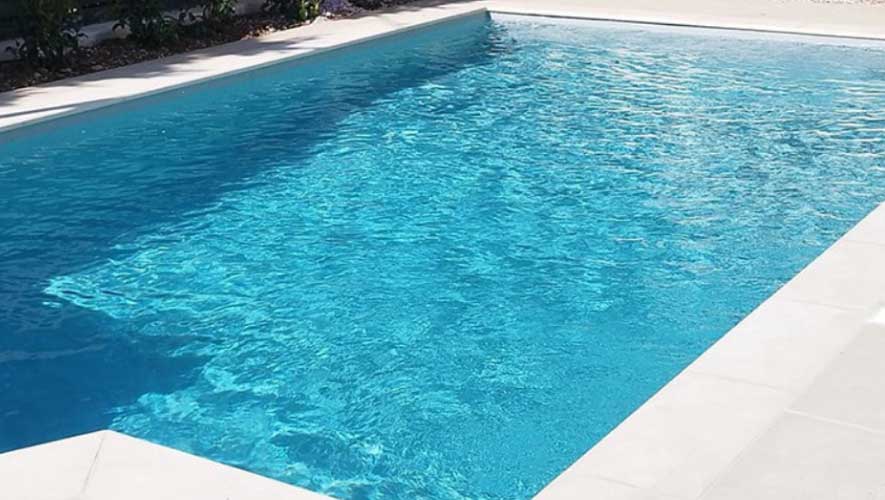
Considerations for Choosing a Pool Resurfacing Material
While a thick reinforced PVC membrane offers many advantages, other factors may influence your decision. Here’s a brief guide to help weigh the options:
- Budget: Plaster may be the most affordable upfront, while tile is the most expensive. PVC membranes offer a balance, providing durability without high costs.
- Aesthetic Preferences: If you value a premium, artistic look, tile may be the best choice. For a customizable and cost-effective option, PVC membranes provide versatility.
- Maintenance Level: Plaster and aggregate finishes require regular brushing and chemical balancing to prevent staining. PVC membranes and tile require less maintenance.
- Pool Usage: For high-traffic pools, the durability and puncture resistance of PVC membranes or tile are suitable.
- Climate: In regions with extreme temperature fluctuations, PVC membranes and tile are less prone to cracking than plaster or aggregate finishes.
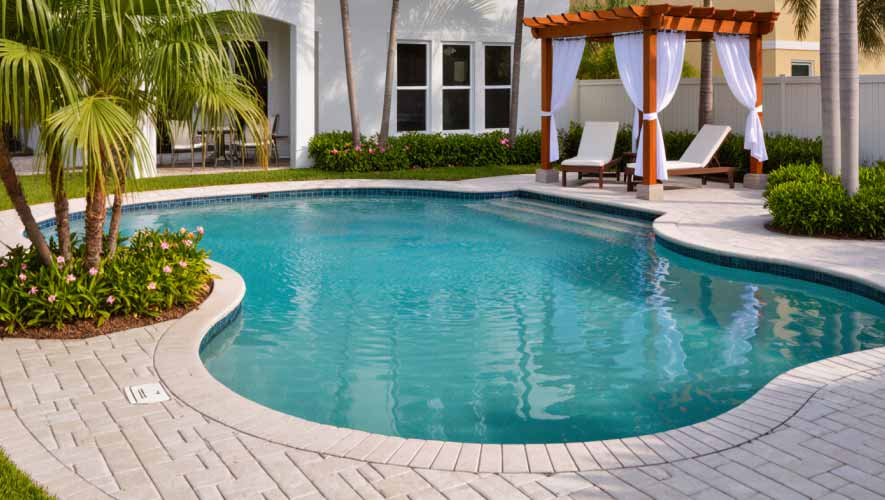
Potential Drawbacks of PVC
Membranes
While thick reinforced PVC membranes are highly practical, they have some limitations:
- Need for Professional Installation: Improper installation can lead to wrinkles or leaks, so hiring experienced professionals is essential.
- Limited Lifespan Compared to Tile: While durable, PVC membranes may not last as long as high-quality tile, which can endure for decades.
Have Questions?
Talk to our specialist! Just fill out the form, and we’ll give you a call!
Conclusion
Choosing the best pool resurfacing material depends on your priorities, but a thick reinforced PVC membrane is an excellent choice for many pool owners. Its durability, low maintenance, cost-effectiveness, and aesthetic versatility make it a strong option. Providing a watertight, comfortable, and customizable surface, it meets the needs of both residential and commercial pools. For those seeking a balance between practicality and style, a PVC membrane deserves serious consideration. Thinking about installing one in your pool? Consult a professional pool builders in Wellington — SAKKOPOOL — to assess your pool’s specific needs before deciding.

